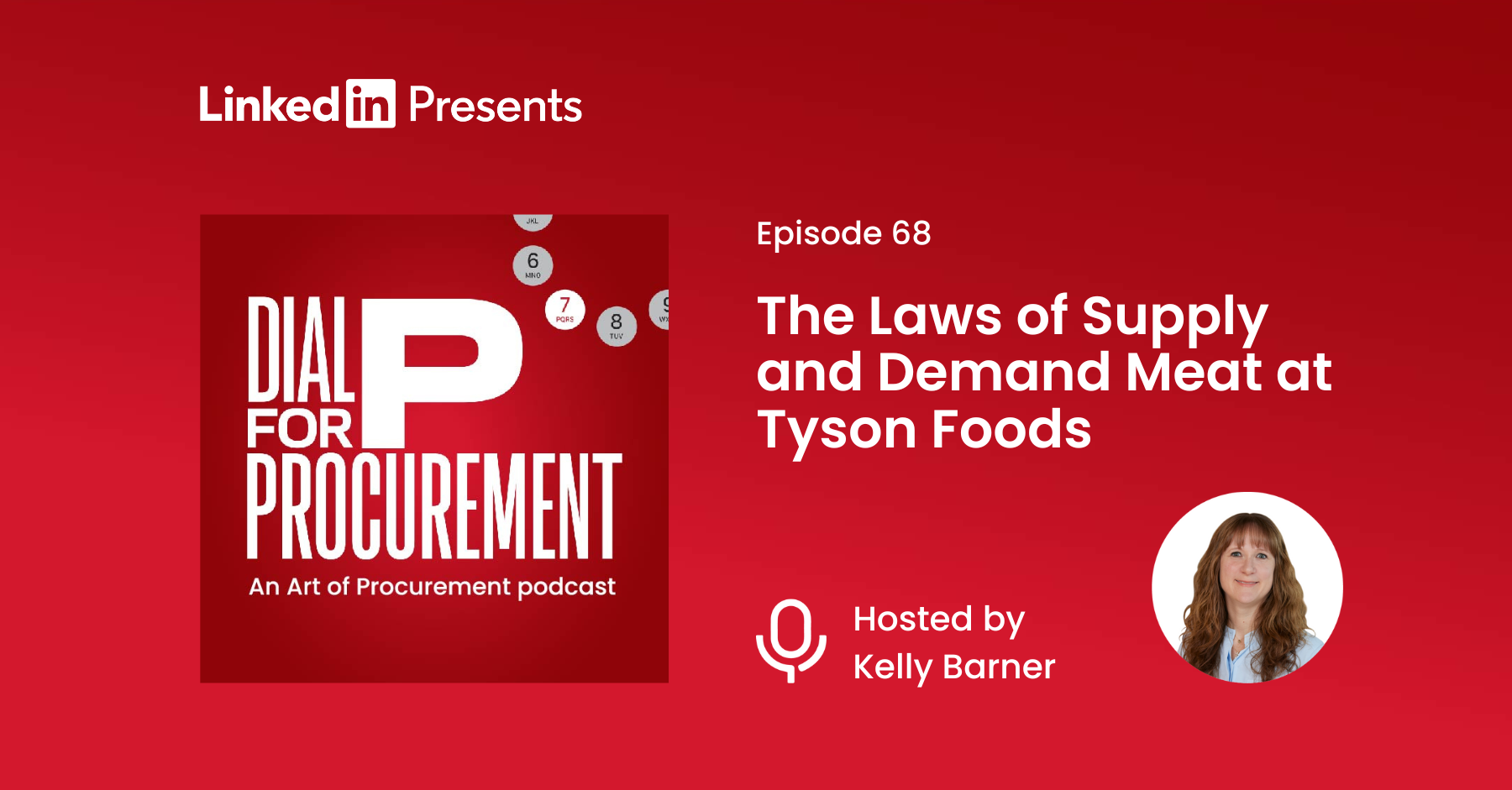
In his book, An Inquiry into the Nature and Causes of the Wealth of Nations, Scottish Enlightenment thinker Adam Smith described the ‘invisible hand’ at play in free market economics.
One of the keys to letting that invisible hand work efficiently is the concept of self-interested interdependence. Producers do what is best for themselves, consumers do what is best for themselves, and the economy reaches equilibrium. If only it were that simple in practice.
In this week’s episode of Dial P for Procurement, Kelly Barner covers a current day example to illustrate the complexity and sensitivity of the laws of supply and demand:
- Tyson Foods is the largest U.S. meat company by sales, and they are caught in a margin squeeze
- The meat supply chain, literally from farm to table, includes many factors that make profitability far from a sure thing
- Why the Federal government’s effort to increase competition and stability in the highly concentrated meat market may actually lead to more instability





